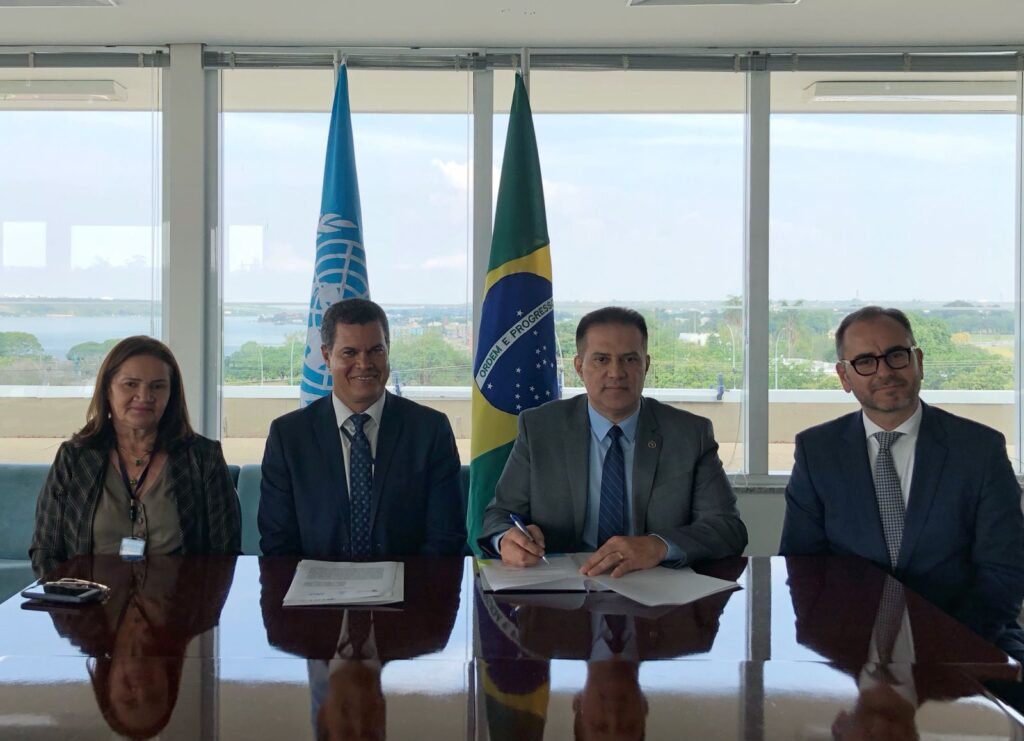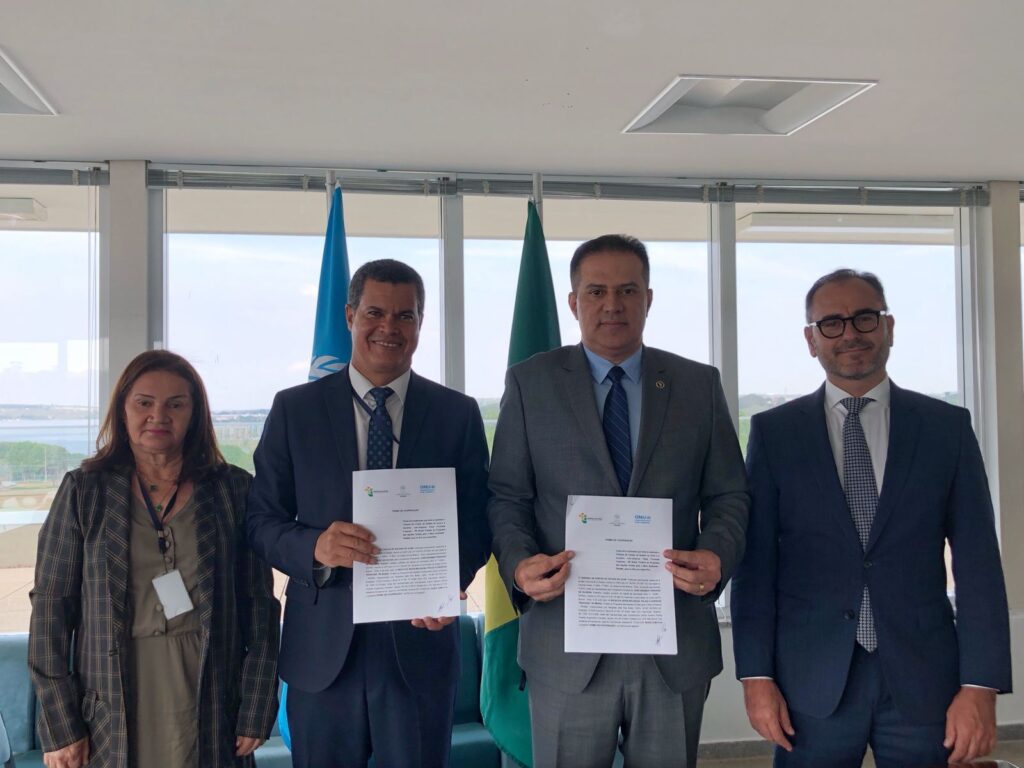Brasilia, 4th of October 2023 – The Court of Accounts of the State of Acre (TCE-AC) and the Interfaith Rainforest Initiative (IRI Brazil), a Project of the United Nations Environment Programme (UNEP), signed a cooperation agreement on Wednesday (October 4th) at the United Nations House in Brasilia for the implementation of actions to combat climate change and preserve forests in the state of Acre.
The agreement was signed by TCE-AC's President, José Ribamar Trindade de Oliveira, IRI Brazil's national facilitator, Carlos Vicente, and TCE-AC's councilor, Dulcinéa Benício de Araújo.
At the signing ceremony, the president of the TCE-AC highlighted the importance of the partnership for the development of actions that contribute to mitigating and adapting to climate change and preserving forests in Acre.
"TCE-AC has the role of overseeing the use of public resources, and this partnership will allow us to develop actions that help guide the government in adopting environmentally sustainable and effective public policies in the face of climate change," stated José Ribamar Trindade de Oliveira.
IRI Brazil's national facilitator, Carlos Vicente, emphasized the importance of the partnership for the dissemination of knowledge and practices related to climate change and forests.
"The partnership is extremely important for the state to develop with social, economic, cultural, and environmental sustainability. The TCE has unique capabilities to stimulate the adoption and implementation of government policies aimed at protecting the population against extreme climate events, such as severe droughts and large-scale floods, as well as policies for the careful restoration and use of forests and water resources. The mobilizing, educational, inductive, and oversight role of the Court can help municipalities and state agencies operate more efficiently, transparently, and participatively to achieve these goals, which are so essential for Acre and the Amazon," he added.
Gustau Máñez, UNEP Representative in Brazil, also attended the signing ceremony and emphasized the importance of the partnership for the development of environmental projects in Acre. He explained that UNEP is committed to supporting actions that contribute to the reduction of greenhouse gas emissions and the preservation of forests.
As the first action resulting from this cooperation, the President of the Court of Accounts of Acre, José Ribamar Trindade de Oliveira, and other councilors of the institution will participate in an Informative Visit organized by IRI Brazil to the National Institute for Space Research (INPE) and the National Center for Monitoring and Early Warning of Natural Disasters (CEMADEN) on October 24th and 25th in São José dos Campos, São Paulo. The objective of the visit is to update knowledge and obtain the latest technical information on climate disasters, their causes, consequences, and impacts in Acre and different regions of Brazil.
Objectives of the cooperation agreement
The cooperation agreement provides for joint actions in two areas:
- Capacity Building: TCE-AC and IRI Brazil will develop and implement training programs on climate change mitigation and adaptation, as well as on restoration, preservation, and sustainable use of forests, targeting TCE employees, municipalities, and state government agencies in Acre.
- Awareness: TCE-AC and IRI Brazil will develop and implement awareness programs on climate change and forests for school communities and the general public.
About TCE-AC
It aims to exercise external control, providing guidance and oversight of public administration while encouraging society to engage in social control.
About IRI Brazil
An international alliance led by the United Nations, which is multi-religious in nature and aims to bring moral urgency and unite the spiritual strength of religions with global efforts to end deforestation in tropical forests. It focuses on Brazil, Colombia, Peru, the Democratic Republic of Congo, and Indonesia, the five countries that together contain 70% of the world's remaining tropical forests.
About UNEP
The United Nations Environment Programme (UNEP) is the primary international forum for environmental cooperation. UNEP collaborates with governments, civil society organizations, and the private sector to protect the environment and promote sustainable development.
Read the full Cooperation Agreement here





